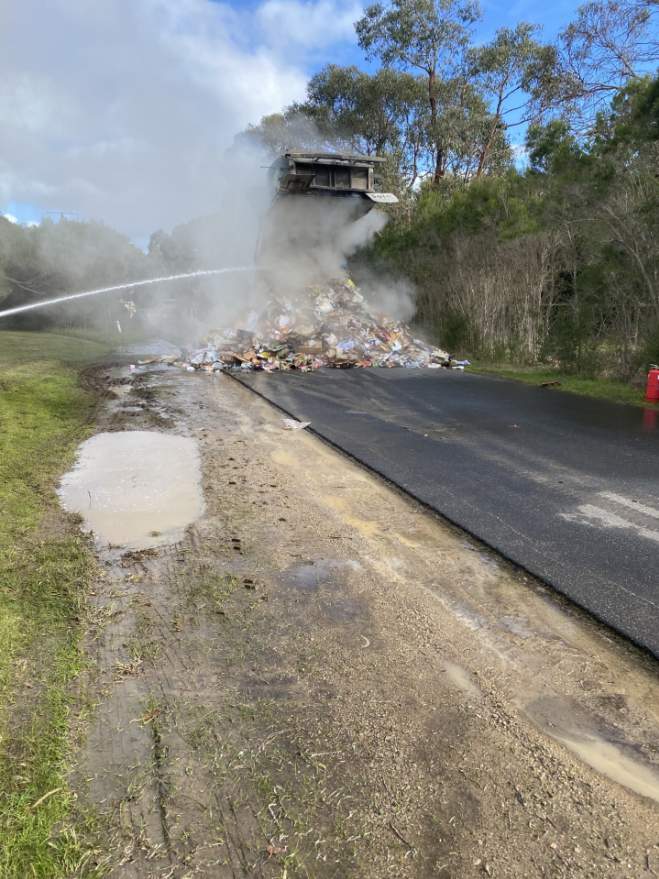 |
In the last 6 weeks, 3 SOLO garbage truck loads in the Tweed have caught fire, forcing drivers to dump 'hot loads' out of their trucks to prevent more serious blazes.
The fires are likely the result of batteries being incorrectly disposed of in residential bins particularly as rechargeable and embedded batteries are becoming increasingly common in everyday devices.
The Australian Council of Recycling estimates that there are between 10,000 and 12,000 battery related fires a year across waste and recycling streams in Australia.
In the case of garbage trucks, when they begin emitting smoke from their hoppers, drivers are trained to discharge the loads because continuing to drive fans the flames. The truck's compaction system, which is designed to press material down and circulate air, can exacerbate a fire if it ignites inside.
Once the loads are dumped, fire crews are called in, clean‑up crews mobilised, and the materials are doused and removed.
While the recent incidents in the Tweed have been dealt with effectively, their regularity raises serious concerns, not only for Council operations and costs, but for public safety and the protection of residents' property.
Rod Dawson Unit Coordinator – Resource Recovery at Tweed Shire Council urges residents to consider where and how they are disposing batteries.
"If you hate the thought of all of your recycling going to waste, or a load of rubbish being dumped on the side of your road and cleaned up, do not throw out anything electronic that may contain a battery," Mr Dawson said.
"It's not only wasteful, messy and expensive, but it puts our drivers in danger of smoke inhalation, burns or injury if the fire spreads inside the vehicle. If we lose the truck or the driver, we lose the ability to provide the service."
Batteries — especially lithium‑ion and rechargeable ones — contain reactive and combustible materials. When crushed or damaged, such as under compaction inside waste trucks, they can short circuit, overheat, vent gas or ignite. A single embedded battery in a discarded device (e.g. in a vape, electric toothbrush, toy or power tool) can spark a fire that becomes catastrophic when mixed with other waste under pressure.
Tweed Council is urging all residents to treat batteries as hazardous waste and adopt safe battery disposal practices:
1. Never place batteries or battery embedded devices in your red, yellow or green bins.
2. Recycle small household batteries, old mobile phones and printer cartridges by bringing them to the Council offices at Murwillumbah and Tweed Heads during business hours.
3. Check Australia's official battery stewardship scheme – B-cycle – to find other drop-off points (including supermarkets and hardware stores): Australia's official battery stewardship scheme - B-cycle
4. Take car batteries, cordless/lithium batteries, household batteries and laptop batteries to Stotts Creek Resource Recovery Centre (the tip).
5. If a battery is damaged, swollen or overheated, the disposal becomes more complex — immerse it in water for safety and contact Council's Resource Recovery Unit for advice before transporting it.






